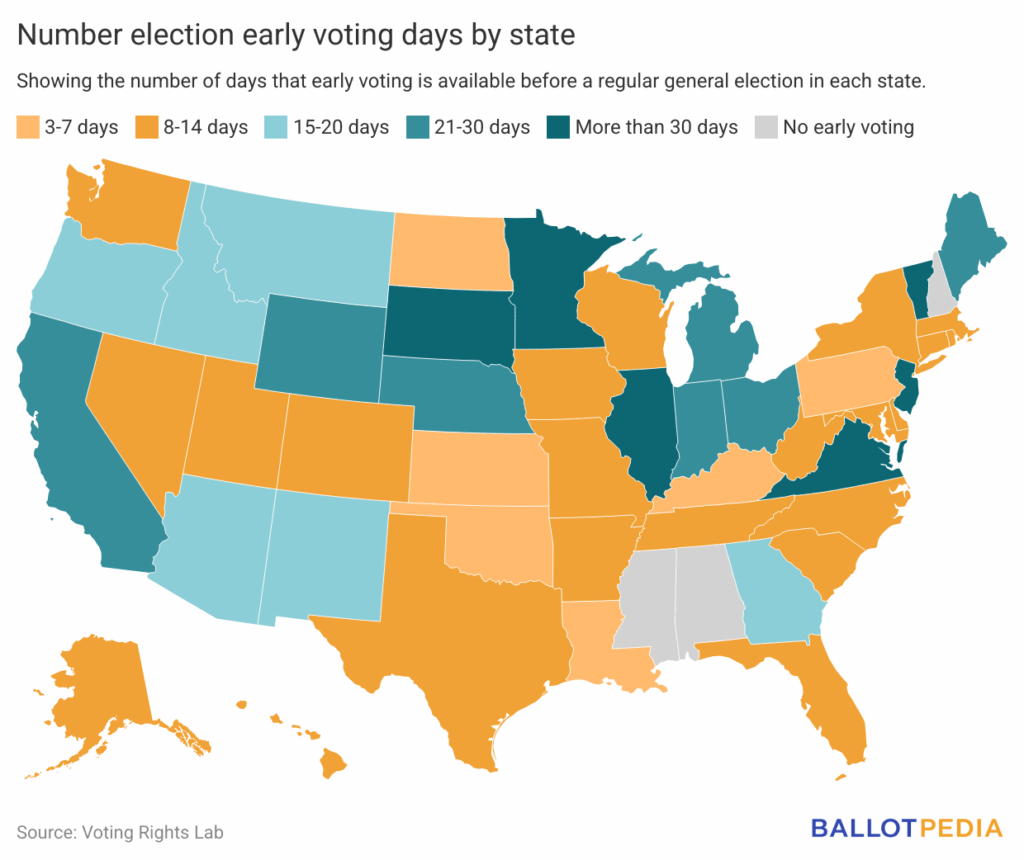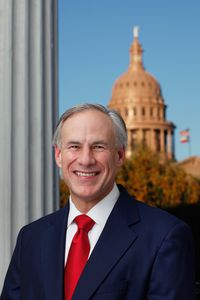On June 22, Texas Gov. Greg Abbott signed SB 2753 into law. The bill moves the start of early voting later, but extends early voting to weekends and the four days leading up to Election Day.
The new law requires early voting to begin on the 12th day before Election Day and end on the day before the election, and to include weekends and holidays during the period. Previously, early voting began on the 17th day before an election and ended on the Friday before the election, and in-person early voting was not available on weekends. For elections occurring on the state's uniform May election date and for runoff elections, early voting will start on the ninth day before Election Day.
The Republican-sponsored bill received mixed support in the Texas Legislature. In the Texas House of Representatives, the final version of the bill passed 84-45 on June 1 with 21 legislators not voting. Both Democrats (23-25) and Republicans (61-20) split their votes in the chamber. The final version of the bill passed the Texas Senate 21-10 along partisan lines on the same day.
Addressing the possibility that the new bill may delay the delivery of election results, the bill's sponsor Sen. Bob Hall (R), said, "I expect they’ll be able to get the total votes not much later if the counties handle it right," and that partial returns previously published during the four day gap between the end of early voting and Election Day "serve absolutely no purpose in the election process other than to give people a piece of information as quickly as possible."
Speaking about potential changes for election administrators, including the possibility of requiring more poll workers or more voting machines, Jennifer Doinoff, the Hays County elections administrator and the legislative committee chair for the Texas Association of County Election Officials, said, "These are just things that we don’t know yet because we haven’t run an election in this model yet. ... It’s something we’re going to have to look at and build from the ground up."
The bill takes effect on Sept. 1 but counties will have until Aug. 1, 2027, to implement the changes. Texas will become the 23rd state where the early voting period ends the day before Election Day, and the 12th state where early voting begins less than two weeks before the election, while 31 states will remain where early voting begins sooner. Three states — Alabama, Mississippi, and New Hampshire — do not have in-person early voting.
Three states — Kentucky, Missouri, and South Carolina — have established early voting since the 2020 general election, while at least 16 states have increased the availability of early voting in the same period. This includes states that passed laws establishing more days or hours of early voting, requiring early voting for new elections, or increasing the number of early voting locations. In 2021, Texas lawmakers passed SB 1, which, among other changes to election laws, eliminated 24-hour early voting but increased the hours an early voting location must be open to nine from a minimum of eight. According to the U.S. Election Assistance Commission's Election Administration and Voting Survey for 2022 — the most recent version of the report available — just over one-fifth of voters nationwide voted early and in person at the 2022 general election.

In total, lawmakers have introduced 167 bills related to early voting in 2025 state legislative sessions, sixteen of which have become law, including S 3990 in New Jersey which extended the early voting period to begin for all primaries and passed with bipartisan support. In Mississippi, bipartisan-sponsored SB 2654 passed both chambers of the legislature and would have established early voting in the state, but died on the last day of the state's legislative session after a procedural motion blocked the bill from advancing to the governor.
In Texas, the new law was part of a group of more than 300 bills that Gov. Abbott signed in the two days before the deadline to act on bills passed during the state's regular legislative session. He vetoed 26 others in the same period. In total, 44 bills from the session related to elections became law, while Abbott vetoed one, HB 5671, related to qualifications for election to serve as a director, and the bond issuance authority of the Johnson County Special Utility District. On June 23, Abbott called a special session and requested lawmakers to further consider six bills that he vetoed or that were filed without his signature, none of which were related to elections.
Additional reading:



